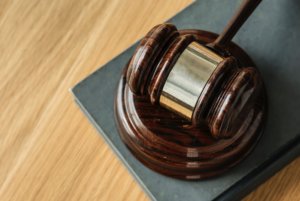The answer might not ease the impatience, but it offers perspective on the United States legal system.

We at FinanceFeeds have noticed a recent surge of visitors towards our piece “SEC v. Ripple: When will the lawsuit end?“, which possibly indicates growing anxiety among the wider trading industry, with the XRP community of stakeholders suffering the most.
The lawsuit filed in December 2020 has pressured cryptocurrency exchanges in the United States to delist the crypto asset developed by Ripple Labs and has probably made many potential customers, including banks and central banks, hesitant to sign up for their services while the lawsuit lingers.
The question “Why is the lawsuit taking so long?” has also spread across social media and attorney James K. Filan, one of the XRP community’s favorite lawyers, provided an answer. It might not ease the impatience, but it offers perspective on the United States legal system.
“This is not the only case Judges Torres and Netburn have to work on. Statistics show that Judge Torres has almost 700 cases pending at any given time. Many of those are civil cases where there will be lots of motion practice, as in this case.”
“Judge Torres also has many criminal cases and under the Constitution those take precedence. There are motions, hearings, trials, and sentencings in all of those cases too. There is a backlog of all cases because the courts have been closed on and off for the past year.”
“Finally, these judges work their asses off. You saw that when Judge Netburn issued a ruling on the Sunday before Memorial Day. I’m sure they are both trying hard to get things done right and quickly. But done right comes before done quickly. We all have to have some patience.”
As to WHEN, the case is likely to be decided at summary judgment in early 2022, according to attorney Jeremy Hogan’s calculations.
The two main issues that should put an end to the case are Ripple’s fair notice defense and whether XRP is a security or not.
Regarding the Fair Notice Defense, the SEC has recently warned the Court that a Ripple win would nullify the Howie Test – the benchmark that has come under scrutiny with the emergence of the digital asset class. Ripple has partnered with Rutgers Law School to push for reform.
A Ripple win on the Fair Notice could not only have a significant impact on Ripple and XRP but also on the crypto ecosystem as a whole and even partially defund the SEC.
On the nature of XRP, the SEC has been claiming the asset is a security due to its centralized nature. Ripple, on the other hand, has kept proposing new use cases for the ledger – which is a sign of utility.
Regarding the status of XRP, Ripple Labs subpoenaed William Hinman to offer his deposition and clarify the SEC’s internal views and policy decision-making, among other issues.
The former Director of the SEC’s Division of Corporate Finance has publicly stated that Ethereum, as well as Bitcoin, are not securities.
Although the SEC is attempting to quash that subpoena, many experts close to the lawsuit believe he will be called to depose. The SEC has previously said his speech on Ethereum and Bitcoin were his own personal views, not necessarily of the SEC.
Mounting pressure on the SEC could, however, motive the financial watchdog to provide its official view on the status of Ethereum once its upgrade, ETH2, goes live. This would help the regulator sound more coherent with its own legal arguments in the SEC v. Ripple case.
Such a decision could be a turn of events for Ethereum as the new upgrade gets even closer to a security status, according to the Howie test and the SEC’s past enforcement actions.
